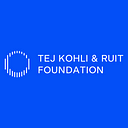Socially Ostracised Whilst Pregnant Because Of Blindness: A Story From The Tej Kohli & Ruit Foundation | #2030InSight
35 year old Anita Yadav was living a content life with her husband, her two sons, and her in-laws in western Nepal. With a third child on the way, Anita and her husband were happy with whatever little they had. However, Anita’s life was soon about to change.
Around three months into her pregnancy, Anita began to experience visual impairment in both of her eyes. Her vision became blurry, and continued to deteriorate with each passing day — causing her and her family to worry.
By the time Anita entered her third trimester — she was completely blind. She needed family members’ assistance to move around the house, and for simple things like fetching a glass of water. Her husband decided that Anita’s blindness was going to be too much of a burden on the family, and he sent her back home to her parents home in Banke, Nepal. “You are to return home only after you have cured your blindness” he told his wife.
Anita felt a deep sense of despair and with a heavy heart went back to her parents home. Her parents were devastated. They did not know if their daughter’s vision could be restored through treatment. Even if it could, they were certain that paying for was surgery would be beyond their means.
Two months after returning to her parents home, Anita gave birth to a healthy baby girl. The first thing that Anita asked the doctor was if her daughter’s vision was impaired like hers? Thankfully, her daughter could see clearly.
With Anita’s pregnancy over, her family turned their focus to curing her blindness. Neighbours were beginning to discuss Anita and her newborn daughter’s fate — and if they could return to her husband’s home.
Anita was taken to a nearby eye hospital. The doctors told her that she was suffering from bilateral cataracts, and that surgery would cost Rs. 16,000 (approx USD 130). But her family did not have that kind of money available.
Back at home, after scraping whatever little resources they had, the family was able to collect Rs. 8,000 (approx USD 65). The doctor advised to therefore get one eye fixed first, and then the other eye later.
The family worried how they would procure the additional funds for her surgery, but then in August of 2021 they heard of an upcoming Tej Kohli and Ruit Foundation eye screening camp that was to take place near their village.
At the Tej Kohli & Ruit Foundation screening camp, Anita and ninety nine others had their eyes checked — of them, 35 including Anita were identified as patients suffering from cataracts, and in need of surgery. The Tej Kohli and Ruit Foundation, which has an aspiration to conduct half a million cataract surgeries by 2026, was to conduct free surgeries for all thirty five as part of the mission to combat preventable blindness in the developing world.
Anita, who had been awfully quiet until then, breathed a sigh of relief. She finally opened up about her experience with blindness — a sad story of social exclusion due to blindness. Her story of social ostracism due to her blindness is all too familiar within the developing world. Dependencies owing to preventable blindness invites social exclusion — children abandon elderly parents who are blind, children suffering from congenital cataracts have little to no future prospects, and husbands abandon wives like Anita who are perceived as a burden, making the argument for investing in social change by restoring sight in the developing world all the more important.
A cataract surgery lasts only seven minutes, and costs only USD 50 — however, for family’s like Anita’s, surgery is out of reach. The seven minute surgery changes lives, and transforms communities.
The following day, Anita’s surgery was conducted by the Tej Kohli and Ruit Foundation in Nepalgunj, Banke. After her patches were removed, she finally broke a smile.
“Maybe my husband will ask me to return home now”, she tells a Tej Kohli and Ruit Foundation team member. “My daughter hasn’t seen her father yet. And I haven’t seen my sons in so many months” she says.
Her eyes show a glimmer of hope.
To learn more about the Tej Kohli & Ruit Foundation visit www.tejkohliruit.com
